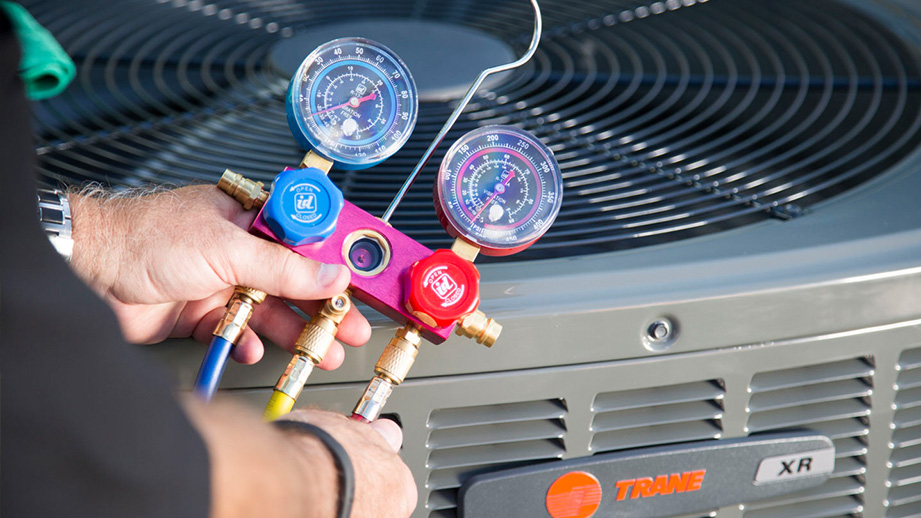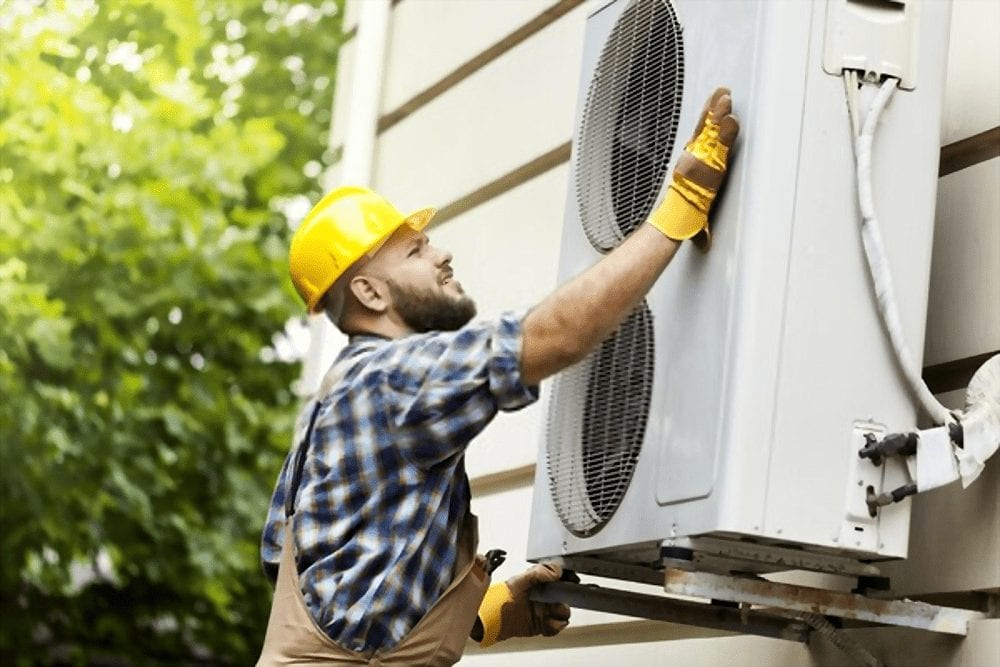The Value of A/c Setup: Trick Factors To Consider for a Comfy Indoor Atmosphere
The installation of a Heating and cooling system is a critical component in achieving an energy-efficient and comfortable interior environment. Variables such as the viability of the system for specific building requirements, appropriate sizing to circumvent inadequacies, and the competence of service providers for a top quality setup play pivotal functions. The adoption of advanced modern technologies can considerably improve system efficiency.
Choosing the Right System

When selecting a HVAC system, it is important to review the capability required to successfully heat or cool down the space without straining the system, which can lead to raised wear and functional costs. Consulting with a professional cooling and heating specialist can offer important understandings right into selecting a system that aligns with both the anticipated usage and the architectural layout patterns of the building.
Furthermore, taking into consideration the integration of clever innovation can enhance system administration and tracking, providing better control and potential expense financial savings. By diligently evaluating these variables, one can guarantee the selection of a HVAC system that not only satisfies immediate needs however also adds to long-term operational sustainability and occupant convenience.
Comprehending Power Performance
Understanding power performance is important when taking into consideration a heating and cooling installment, as it straight affects both the ecological footprint and the operational expenses of the system. High-efficiency heating and cooling units are made to make use of much less power to accomplish the exact same level of convenience as much less reliable designs, thereby decreasing energy bills and promoting sustainability. The efficiency of a heating and cooling system is normally shown by scores such as SEER (Seasonal Power Effectiveness Proportion) for air conditioning system or AFUE (Annual Fuel Use Effectiveness) for furnaces. Greater scores represent higher effectiveness and lowered power intake.

Purchasing an energy-efficient heating and cooling system not only converts to cost financial savings yet also adds positively to ecological preservation by lowering greenhouse gas exhausts. Furthermore, many jurisdictions supply incentives or rebates for the setup of high-efficiency systems, better enhancing their monetary allure.
When evaluating energy performance, think about advanced features such as variable rate motors, wise thermostats, and zoning capabilities. These advancements enhance the system's capability to adapt to varying need, therefore maximizing power usage. It is important to seek advice from HVAC professionals that can provide insights right into the very best alternatives customized to details climate problems and usage patterns, ensuring optimal effectiveness and comfort.
Significance of Proper Sizing

Alternatively, a small HVAC system will have a hard time to reach the desired temperature level, specifically throughout severe climate condition. This can result in continuous operation, bring about greater energy expenses and potential getting too hot of system parts. Furthermore, poor sizing can bring about inconsistent temperature level circulation, creating particular locations of a structure to be as well warm or too great.
To attain the proper sizing, an extensive load estimation is essential. This entails evaluating different factors such as the structure's square video footage, insulation degrees, window kinds, and regional environment problems. By precisely identifying the heating and cooling needs of a space, HVAC experts can advise systems that make certain reliable procedure, reduced energy intake, and enhanced indoor convenience.

Guaranteeing Quality Setup
A smooth a/c installation is the foundation of a system's long life and performance. Ensuring quality setup entails precise interest have a peek at these guys to detail, adherence to industry requirements, and employing proficient specialists. home air conditioner The process starts with picking a knowledgeable and qualified cooling and heating service provider. This professional should possess extensive knowledge of varied systems and be adept at examining the specific needs of the building.
Correct installation surpasses mere placement of equipment. It includes accurate calibration to guarantee optimal airflow, reliable power usage, and uniform temperature circulation. This includes exact ductwork installation, making sure links are leak-free and safe, which is critical for preserving system performance and interior air top quality.
Furthermore, the implementation of advanced diagnostic devices during installation can identify prospective concerns early, avoiding pricey fixings and prolonging the life expectancy of the system. The service provider needs to also make sure that all components work which the system complies with neighborhood building regulations and policies.
Regular Maintenance Practices
Once the structure for a high-performing HVAC system is developed via high quality installation, the focus ought to change to regular upkeep methods to guarantee continued performance and dependability. Routine upkeep not only expands the life expectancy of the system but also enhances interior air high quality, reduces power consumption, and avoids expensive repairs. Necessary maintenance jobs include routinely changing air filters, cleansing evaporator and condenser coils, and inspecting the system for obstructions or leaks.
Air filters ought to be changed or cleaned each to three months, depending upon usage and environmental variables. This simple job can dramatically boost air circulation and system effectiveness (Plumber in Brownwood TX). Cleansing the evaporator and condenser coils avoids dirt accumulation, which can his explanation hinder warm absorption and cooling capacity. Furthermore, specialist service technicians ought to evaluate the system each year, inspecting for refrigerant levels, electrical links, and total system efficiency.
Focus to ductwork is likewise vital; sealing and cleaning up ducts routinely protects against air loss and contamination. Carrying out a maintenance routine makes sure that minor concerns are attended to prior to they rise, guarding the system's functional honesty. By sticking to these maintenance methods, house owners can enhance their heating and cooling system's functionality and maintain a comfy interior setting year-round.
Final Thought
By choosing a proper system customized to specific building demands, comprehending power performance, and making certain correct sizing, inadequacies can be minimized. The participation of experienced specialists guarantees top quality installment, while the assimilation of advanced technologies boosts system performance and surveillance.
A number of types of A/c systems are offered, consisting of split systems, crossbreed systems, duct-free systems, and packaged home heating and air systems, each with distinctive benefits and limitations.
Recognizing energy performance is vital when thinking about an A/c installment, as it straight impacts both the ecological impact and the functional prices of the system. The performance of an A/c system is usually indicated by scores such as SEER (Seasonal Energy Efficiency Proportion) for air conditioners or AFUE (Annual Gas Usage Effectiveness) for heating systems (Electrician in Brownwood TX).Once the structure for a high-performing Cooling and heating system is established with high quality installment, the emphasis must change to normal upkeep techniques to guarantee ongoing effectiveness and reliability. In addition, specialist service technicians must inspect the system each year, checking for refrigerant degrees, electric connections, and total system efficiency